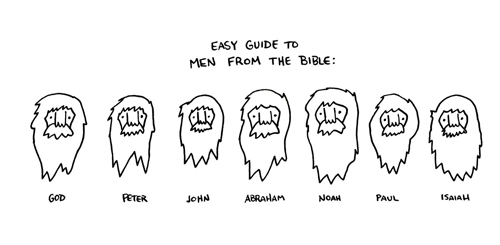For a moment, just a fleeting second, on Tuesday, I had a pang of conscience. I post a lot of videos here that I loosely categorise as “Christians doing stupid stuff and posting it on the Internet”… I was wondering why it is I post such videos. The other sites that do it seem to do it because they don’t like Christianity very much. But that’s not me. I love Christianity. I love the church. I love broken and stupid people trying to serve God with their gifts. And yet. I watch a video like this:
And I think “I just need to post that” – I didn’t post that video on Tuesday, and I only post it now, because it illustrates a point. Stripped of context that video is really dumb. In context, it’s an instructional video for a holiday kids club (judging by the title) that I assume has been uploaded to YouTube to cut down on pointless time in leaders meetings. A nobel aim. One that should be applauded (there are “private video” settings on YouTube though – which are probably more suitable for this sort of thing).
There are Christian videos online, and there are videos from “Christian Culture”… and there are those that just brilliantly highlight what is wrong with some of the parasites that have attached themselves to Christian culture…
Others just contain laughably bad theology.
So, I felt a little guilty about laughing at brothers and sisters in Christ. I thought “people laughed at Noah when he was building an ark, just because something looks stupid doesn’t mean it is.”
Then. I read this post on the Dilbert Blog by Scott Adams called the mockability test. And it kind of summed up why I think we need to call out Christians when they do ridiculous stuff. And lets face it. If God hadn’t directly said to Noah “build an ark I’m going to flood this place” – it would have been pretty ridiculous to build a massive ark and start collecting pairs of animals (I might be looking at you, creation museum builders).
Here’s a snapshot from the Dilbert article:
“I have a theory that some sort of mockability test would work like a lie detector in situations where confirmation bias is obscuring an underlying truth. In other words, if you believed that hard work often leads to success, and yet I could easily make jokes about it, that would be a contradiction, or a failure of the mockability test. And it would tell you that confirmation bias was clouding your perceptions. To put it in simpler terms, if a humorist can easily mock a given proposition, then the proposition is probably false, even if your own confirmation bias tells you otherwise.”
What I really want, when I post these videos, is for any of my readers who are interested in seeing the gospel being spread to their neighbours to take stock – and make sure that everybody in any of their flocks, spheres of influence, or family, avoids doing stuff that makes Christians a laughing stock.
The cards are stacked against us as it is with our counter-cultural gospel without us building extra obstacles onto our culture. You know the type of obstacle I’m talking about. The type that makes it look like being a Christian requires twirling flags around and speaking in tongues, or being completely off your face (though I’d put those people in the “calling out heretics” category not in the “hey this is slightly wacky” category), or just looking like an idiot. And I want non-Christian readers to go “yeah, those people are on the fringe of Christianity and converting doesn’t mean I have to have a lobotomy”…
So that’s why I’m going to keep posting videos of Christians doing dumb stuff on the internet. Because family members do dumb stuff all the time – and it’s loving to call them out on it in the hope that they’ll stop. It’s tough love.
What do you think? Should we be mocking videos of Christians, or people calling themselves Christians, doing stupid stuff? Are there reasons I haven’t considered for, or against, my argument?



